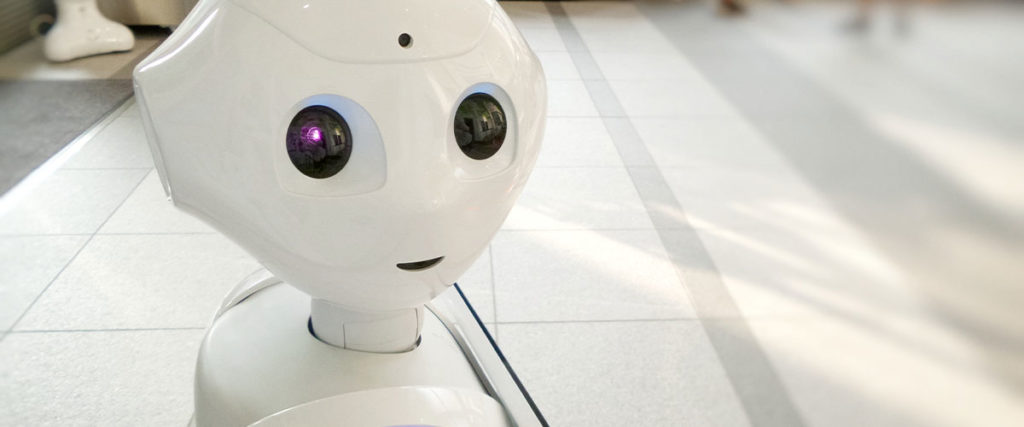Artificial intelligence is set to change our society radically, be it via self-driving cars or the automation of our jobs. Hong Kong-based AI expert Kevin Pereira urges us all to ditch the fear, get on board, and innovate to thrive in this brave new world.
What was once just a figment of the imagination of some of our most famous science fiction writers has since become a critical part of our everyday lives. From self-driving cars and automated supermarket check-outs to robots cleaning your house and voice recognition software that unlocks your phone, it’s clear that artificial intelligence (AI) today is no longer a remote possibility spoken of in the future tense, but instead, a real phenomenon already transforming our daily lives.
In the last few years, in particular, we have seen vast quantities of coverage on the potential impact that AI, robotics and their associated technologies might have on our jobs and careers. Back in 2018, Hive Life met with Kevin Pereira, MD of AI consulting firm blu to better understand some of the fears surrounding AI as well as its possibilities and its limits. It’s now 2020 and, according to Entrepreneur magazine, close to 40% of businesses are already using AI – a number expected to grow to 80-90% over the next 18-24 months. With our interest piqued, we sat down with Kevin to get an update on the AI landscape and more specifically, its implications for the future of work.
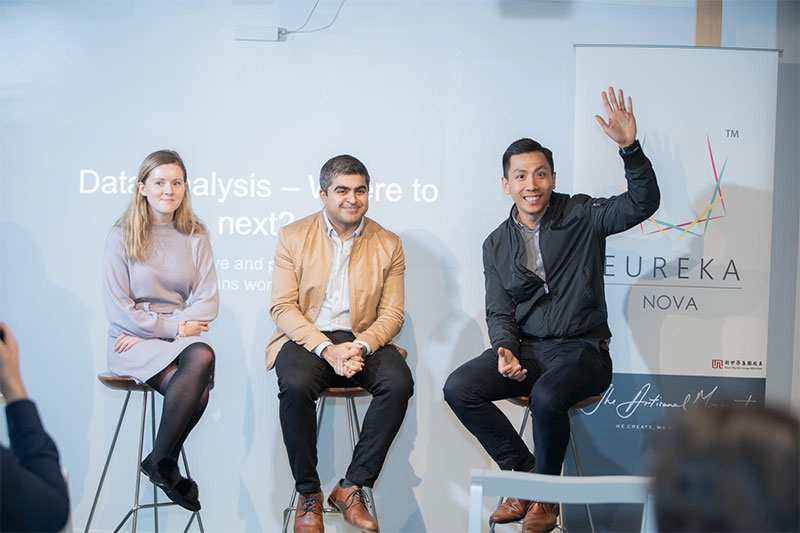
For those at the forefront of AI, education is being used as a tool to combat the fear and confusion of what can often be perceived as an ‘otherworldly’ technology. As a Visiting Lecturer at the University of Hong Kong (HKU) Kevin teaches a full-credit MBA course titled ‘Artificial Intelligence for Business Leaders’ whilst also lecturing at the Hong Kong University of Science and Technology (HKUST) as a Visiting Scholar. On top of that, as the Managing Director for blu, Kevin spends a good chunk of his time speaking at conferences and leading corporate workshops to members of innovation and strategy teams from a myriad of industries in multiple locations around the world. According to him, it’s only after the education part of AI that you can do the implementation, as the very first step in making AI work for your business is to remove this ‘fear’ of the unknown.
From spam filters and smart email categorisation to virtual assistants and machine learning algorithms, AI is already changing business as we know it, speeding up processes and helping to increase work productivity and efficiency. Hiring processes, in particular, have been greatly accelerated thanks to AI’s ability to analyse millions of social profiles and resumes, whilst quickly detecting a list of potential candidates. But, with these leaps in automation, many fear that AI will take away jobs from humans – a fear that has been proved true in certain sectors such as manufacturing where it’s predicted that up to 20 million jobs around the world could be replaced by robots by 2030, according to analysis firm Oxford Economics.
You might also like Can AI Think Creatively? Japanese Songwriting App Amadeus Code Believes So.
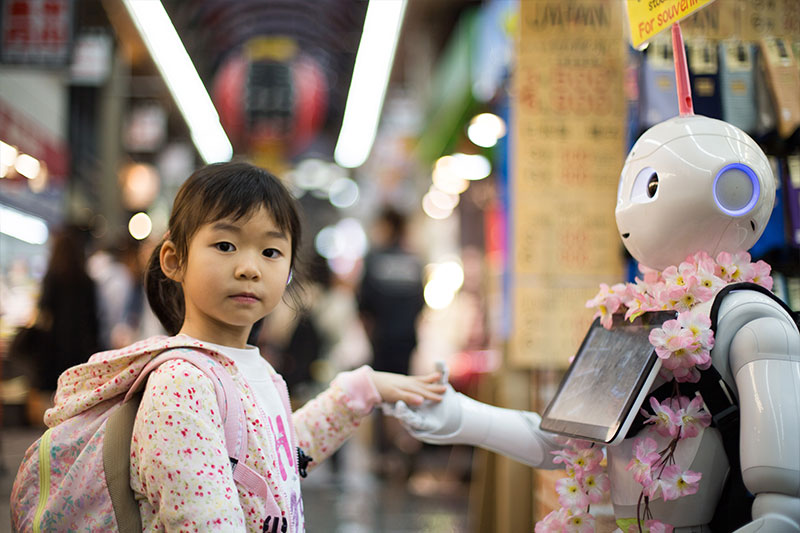
Still, Kevin is eager to point out that this advancing technology does not have the capacity to encroach on all areas of productivity – nothing like it. “AI is very good at doing certain specific tasks very, very well, but it’s not very good at doing a lot of different things,” he begins. For example, if you ask an AI, ‘Is this a cat or not a cat?’, the AI can answer very easily. However, if you ask the AI, ‘What animal is this?’, that’s actually very hard because the AI needs to know what every possible animal is and then figure the answer out based on that. So, the idea that AI is going to replace your job tomorrow is definitely not going to happen. Will it take away pieces of it? Absolutely.” In fact, AI is already taking pieces away from our everyday jobs in incremental stages, saving you five minutes here, three minutes there. Examples of this include Google’s spam filters and x.ai’s instant scheduling assistant. With AI automating repeatable and mundane tasks, the human workforce will be freed up to focus on more complex tasks like sales strategy and customer satisfaction, whilst honing their uniquely human skills such as social abilities, creativity, empathy, emotional intelligence and reasoning. For businesses to thrive in the future of work, humans will need to work in tandem with AI.
The main jobs at risk are those that involve process-oriented or quantitative reasoning skills and are repetitive in nature, such as trucking, factory work, loan underwriting and translation. The disruption is expected to hit certain people harder than others, in particular, low-wage earners and men. “Anything along the lines of rudimentary customer service, such as cashier clerks in a supermarket or back-office functions, are definitely in trouble,” claims Kevin. He lays out that certain aspects of high-paid, well-educated white-collar workers will also be affected. Medical staff, pilots, financial advisors and attorneys are all examples of white-collar jobs that may involve some tasks that could be replaced by technology that doesn’t need to go to the bathroom or take a two-week vacation every year – and can go 24/7 without needing any overtime.
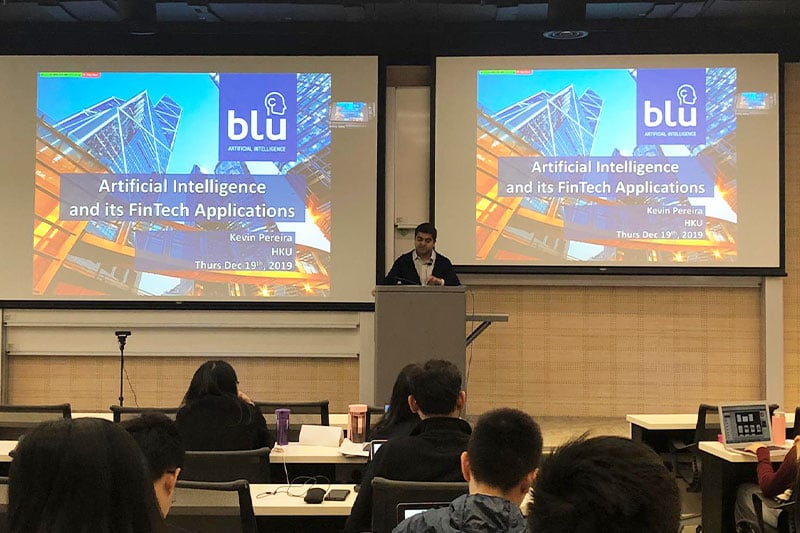
And yet, this automation does not overcome the hurdle of the human trust factor. “A question I always like to ask people is, ‘Would you get on a plane with no human pilot onboard?’ Most people usually will say no, and the reason for that is that there’s a certain comfort factor that’s associated with having a person there,” says Kevin. “So, I think that when it comes to automation or replacing parts of certain jobs, there’s a capability aspect and then there’s also a trust aspect. Take the plane example: aside from taking off and landing, planes pretty much run on autopilot for large segments of the flight. So, realistically, we shouldn’t really be afraid of it. In fact, we should probably be more afraid of the pilot. We don’t know if they’ve had a bad day or if they partied the night before. But, despite the fact that AI has already been successfully flying planes, there’s still this reticence when I ask the question, ‘Would you get on a plane with no human pilot onboard?’ People just aren’t ready to trust an AI over a human yet. In order for mass replacement, we’re going to need the trust piece and the capability piece to come together. Take cashiers as another example. Do you need to have a trusting relationship with your cashier? Probably not. Can the AI do this better and faster than the cashier? Yes. So, when you’re thinking about automation, think about it from this perspective: is there a capability portion that AI can do better or equal? And is there a trust factor that AI cannot overcome yet?”
But what about the jobs that AI can’t displace? According to Kevin, that’s not the right question to ask. “The way I view a lot of jobs going forward is that it’s not going to be about the jobs, it’s going to be about the skill sets. Which skill sets are harder to automate? Human-to-human interaction, empathy (to a certain extent), and storytelling (the art of persuading people to do something) are all-powerful skills that AI will struggle to replicate. To be a psychologist, for example, you have to have skills in empathy, and you also have to be good at interpretation. You can’t just input a picture of the patient’s face into an AI and figure out how the patient feels using emotive analytics. A psychologist has to listen to what you’re saying, understand your tone, your past history – they have to work within the grey area.”
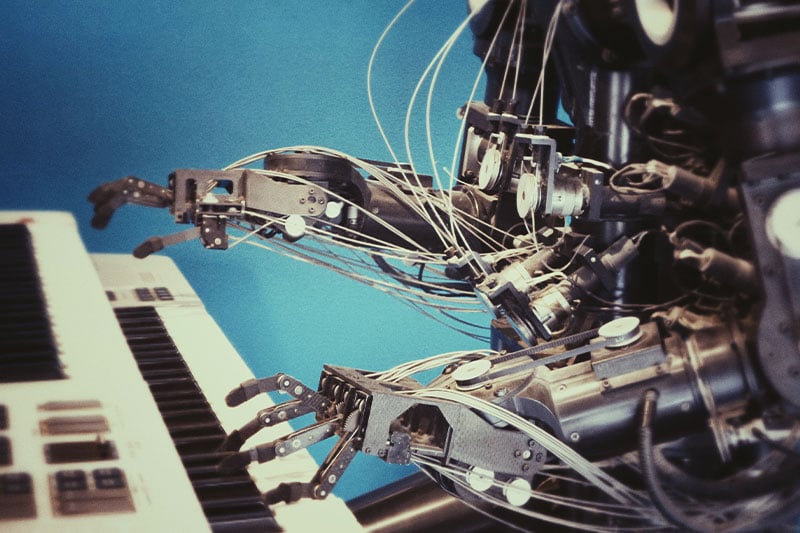
“Similarly, any jobs to do with customer service that requires personalisation should be safe. Let’s take private bankers, for instance. That job requires a high level of personal touch. You have to know your client really well and build trust with them. When I was an undergrad, it was the folks applying for hedge funds and private equity firms on the investing side that were regarded as being the ‘smart ones.’ At the time, they thought, ‘We’re forever going to be rich’ and ‘This is going to be great.’ And then, there were the people that went into Investor Relation functions such as fundraising, which was often referred to as the ‘softer side.’ The funny thing is that a lot of that investing stuff is now being automated, meaning that that investing piece is slowly going to move on. But that fundraising part? Well, that’s a human-to-human kind of job, and that’s going to be around for a while.”
In this new landscape, a whole world of job creation awaits – in 2020, Gartner predicts that AI will create as many as 2.3 million jobs, whilst eliminating 1.8 million. “The first smartphone came out in ‘92. Imagine if you told a kid back then that they could grow up to be an app developer. They’d probably look at you and be like ‘What?’ There are so many jobs out there today that we simply hadn’t conceptualised back then,” explains Kevin. Jobs like machine learning engineers, data scientists, online marketers, and AI researchers – these are all examples of careers that emerged thanks to improvements in technology. Other new jobs include educators, lawyers, and regulators to help society adjust to the changing technologies. In short, jobs will have to shift and evolve, not simply disappear. For example, cashier clerks have transitioned into checkout assistants, ready to answer to any customers’ questions and needs, whilst being on hand to manage and troubleshoot the new self-checkout systems.
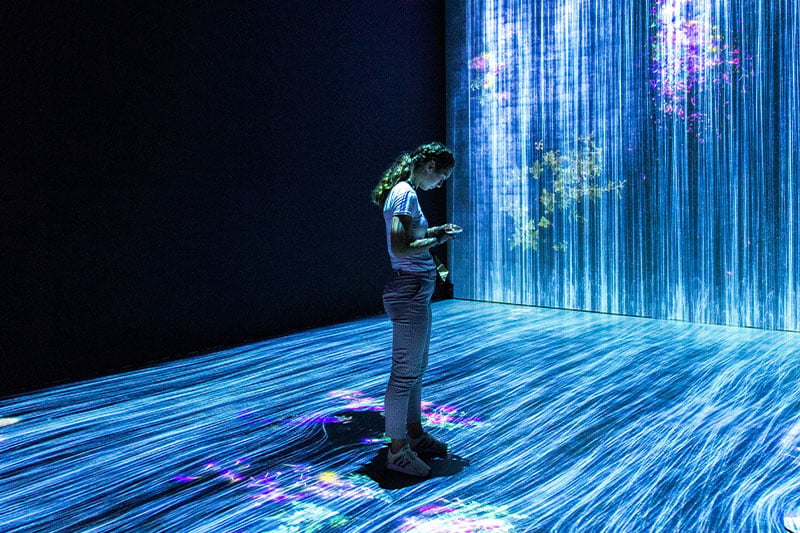
For Kevin, it’s imperative that we equip our young people today with the skill sets that will be relevant for our future. “I went to a primary school the other day. They were still learning the same things I was learning back when I was at school. Things like, ‘What is 3×9?’ That’s just not a skill that people need now. Today, if you need to split a bill, you just ask Siri or use your calculator on your phone. There’s an app for literally everything involving daily math, so why are we still focusing on mental math? I’m worried that we are not providing our young people with the right types of skills to be able to succeed and stay relevant in an AI-driven world.”
Having spent his formative years in Hong Kong, Kevin is no stranger to the education mentality in his hometown. “Today, if a kid from Hong Kong goes and tells his parents that they want to major in art history, the assumption is that they’re going to have a harder time. But, I think tomorrow, Art History might actually be a comparable option to, say, Biology. Because if you’re a radiologist, you’re just looking at scans all day and that’s a job that an AI can do so much better. It’s the same with Philosophy. There are so many ethical implications that come with the application of AI, and who are the people best suited to set those ethical frameworks? Philosophy students.”
For Kevin, the biggest challenge facing AI today is humans. “For everybody who’s seeing AI coming and is worried about what’s going to happen, I’d say, ‘Just be open.’ You can always say no later if you find that it’s really ineffective or doesn’t work, but at least be open to the idea. Because, if you’re not, someone else is going to do it. It’s natural to be afraid of new technologies. I understand the fear of something new. I get it. But, I think that that’s when you’ve got to really persist. Get out of your comfort zone and at least give it a shot. You might be pleasantly surprised at what you find out.”
Related Articles
AI Healthcare: More Accurate Than Doctors?
